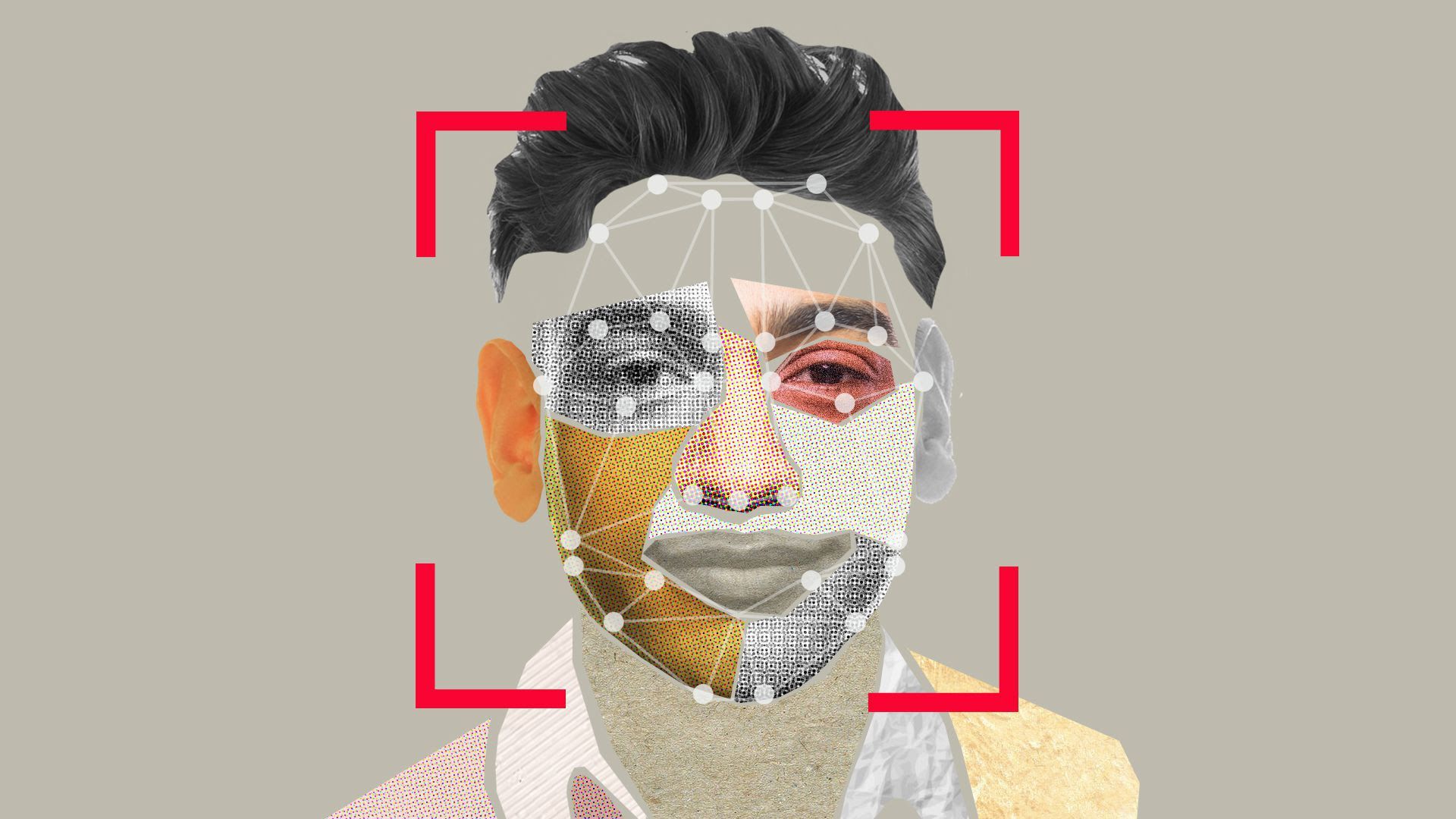Activists fight to keep face recognition off college campuses
Add Axios as your preferred source to
see more of our stories on Google.

Illustration: Sarah Grillo/Axios
Fresh off a campaign to ban facial recognition software from being used at concerts, Fight for the Future is trying to rally students to persuade their schools to take a similarly strong stand against broad use of the powerful technology.
Why it matters: In the absence of legislation limiting its use, activists want to prevent facial recognition from becoming commonplace in public spaces.
"While facial recognition is not yet widespread on college campuses, the companies that make it are aggressively marketing it to schools. ... Now is the moment to draw a line in the sand and prevent this dangerous technology from creeping further and further into our daily lives."— Evan Greer, deputy director of Fight for the Future, tells Axios
What's new: Fight for the Future is partnering with Students for Sensible Drug Policy for its campaign. The goal, Greer says, is to get as many colleges and universities as possible to commit to not use facial recognition technology on campus.
What they're saying: Abhi Duwan, a junior at George Washington University where he's president of its SSDP chapter, pointed to well-documented issues of racial and other bias as well as other dangers.
"Many groups or even the government could force the administration to share our biometric data, putting students at risk. ... If students and professors are under 24/7 surveillance, this could significantly detriment diversity of academic thought and discourse."— Abhi Duwan
The big picture: Fight for the Future has been trying to stop the creep of facial recognition in a wide range of areas. Its effort targeting concert promoters got 40 of the world's largest music festivals, including Coachella, SXSW and Bonnaroo, to state they don't have plans to use such technology.
- Ideally, that "will help build momentum for what we really need, which is an outright federal ban on all use of facial recognition for surveillance purposes," Greer adds.
The other side: Proponents of the technology say it can help keep people safe, provided issues of privacy and bias can be addressed.
Go deeper:
